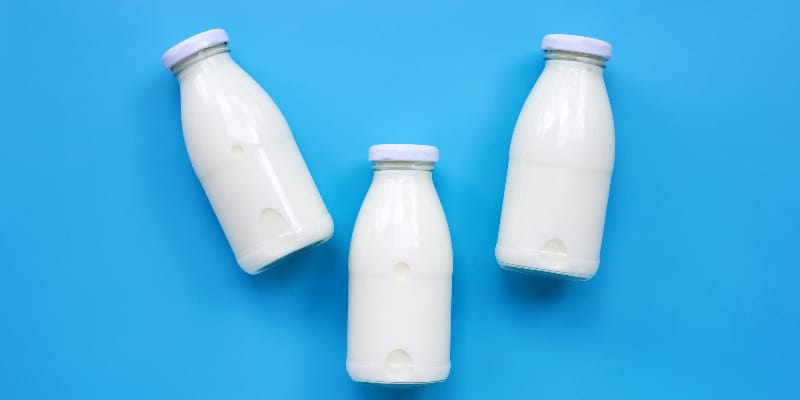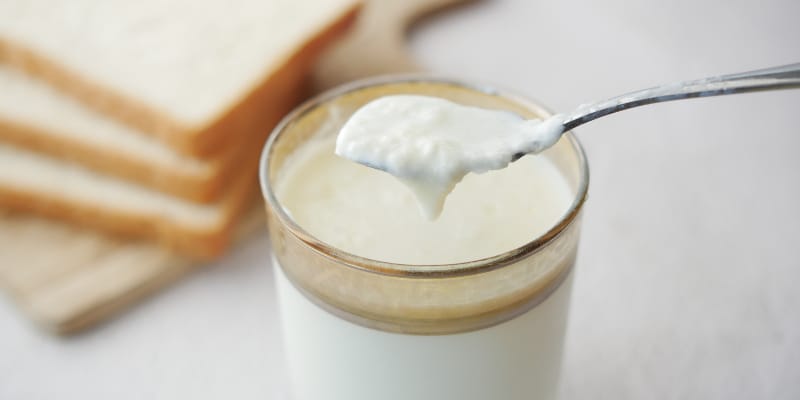In an ever-changing landscape of food choices, the debate about which type of milk is the healthiest has generated a lot of discussion and debate. In this discourse, skimmed milk emerges as a topic of great interest.
Whole milk is praised for its creamy flavor and is often tested for fat content. But is she really a villain in the dairy world, or does she have hidden nutritional benefits that make her the choice of health-conscious individuals? With this insight, we delve into the world of whole milk, dissecting its components and exploring its place in a balanced diet. Join us on this journey to discover the truth about raw milk and its role in the pursuit of a better life.

Types of Whole Milk
Whole milk basically refers to cow's milk with its natural full-fat content, which is about 3.25% fat. However, condensed milk and its accompaniments vary to meet different dietary preferences and needs. Here are some condensed dairy and related items.
Standard Whole Milk: This is the classic whole milk you find in most grocery stores, with around 3.25% milk fat. It is unaltered, retaining its natural fat content.
Organic Whole Milk: Organic whole milk is sourced from cows that are raised without the use of synthetic pesticides or hormones. It maintains the same fat content as standard whole milk but adheres to organic farming practices.
Raw Whole Milk: Raw milk is unpasteurized and unprocessed, meaning it retains all the natural enzymes and nutrients. In some regions, the sale of raw milk is restricted due to potential health risks.
Homogenized Whole Milk: Unlike regular whole milk, which has fat particles that can separate, homogenized whole milk undergoes a process that breaks down and distributes fat particles evenly throughout the milk. This gives it a consistent texture and prevents the cream from rising to the top.
Lactose-Free Whole Milk: Lactose-free whole milk is treated to break down lactose, making it suitable for individuals with lactose intolerance while still retaining the total fat content.
Whole milk: Is it unhealthy?
The health and well-being of whole milk, like many foods, depends on various factors, inclusive of your character's nutritional wishes, ordinary eating regimen, and fitness goals. Whole milk has both dietary advantages and disadvantages, and whether or not it is taken into consideration as unhealthy can vary from individual to man or woman. Here are some key points to remember when evaluating the overall healthiness of complete milk:
Nutrient-Rich: Whole milk is a good source of essential nutrients, including calcium, vitamin D, and high-quality protein.
Satiety: The fat content in whole milk can provide a sense of fullness and satiety, which may help with appetite control.
Vitamin Absorption: The fat in whole milk can aid in the absorption of fat-soluble vitamins like vitamin D and vitamin K.
Bone Health: The calcium and vitamin D in whole milk are essential for maintaining strong bones and teeth.
Drawbacks:
1. Calories and Saturated Fat: Whole milk is relatively high in calories and saturated fat. Consuming it in excess can contribute to weight gain and may not be suitable for individuals with specific dietary restrictions or health conditions.
2. Cholesterol: The saturated fat in whole milk can raise LDL (low-density lipoprotein) cholesterol levels in some individuals, potentially increasing the risk of heart disease.
3. Lactose: Whole milk contains lactose, which can be problematic for people with lactose intolerance, causing digestive discomfort.

What are the Basics of Milk Alternatives?
If eating milk is not an option (depending on your preferences, or if you are vegan, vegan, or lactose restricted), there are many dairy alternatives available on the market, as low-fat milk, dairy fat-free milk alternatives often contain specific vitamins and nutrients added to fortified And its components. Of all the varieties, choose the unsweetened type. Milk and milk substitutes can double the sugar content if they are sweetened with sugar.
- Almond Milk
Almond milk is vegetarian and fermented with ground almonds. The slurry was mixed with water and then filtered. Vegans who are naturally lactose-free can consume almond milk. While almonds are a good source of protein, almond milk is not. One cup of unsweetened almond milk contains about 1 gram of protein, compared to 8 grams per cup of cow's milk. It is tiny and has very little saturated fat. It is a good source of vitamin A and potassium and is often fortified as a good source of vitamin D.
- Soy Milk
Soy milk is made by suspending soybean meal in water. This widely used dairy replacer is of plant origin and is consumed by vegetarians and lactose intolerant. It's a decent source of protein (like cow's milk), and it's much lower in calories than skim milk (it has about the same amount of calories as non-fat milk) and has very little fat.
Soy milk is a good source of vitamin A and potassium and is often fortified as a good source of calcium and vitamin D. However, soy is also a common allergen, so soy milk should not be consumed by people who are allergic to soy. Also, most soybeans in the U.S. are grown. It comes from genetically modified plants, which is a concern for some. In addition, excess soy can be problematic for people with thyroid disease or other conditions.
- Rice Milk
Rice milk is a popular and versatile plant-based milk alternative that has gained significant traction in recent years, thanks to its suitability for various dietary preferences and its unique nutritional profile. This dairy-free option is made from milled rice and water, making it an excellent choice for individuals who are lactose intolerant, vegan, or have dairy allergies. In this comprehensive exploration, we delve into the world of rice milk, uncovering its production process, nutritional benefits, potential drawbacks, and the many ways in which it can be incorporated into a healthy diet.
Conclusion:
In conclusion, the debate about whether whole milk is the healthiest milk is complex and nuanced. Whole milk, rich in nutrients and satisfying, provides undeniable health benefits. However, its relatively high calorie and fat content may cause concern for some individuals with specific dietary restrictions or health goals. The key to incorporating whole dairy products into your diet is making healthy and mindful food choices.

Mastering the Art of Self-Tanning: Expert Tips and Tricks for a Flawless Glow
Nov 01, 2023

Get to know about 7 amazing Foods That Can Save Your Heart
Mar 15, 2023

Navigating Neuroticism: How It Influences Behavior and Personality
Oct 04, 2023

Reaping the Health Benefits of Anaerobic Exercises
Aug 17, 2023

Unlocking the Secrets of Hydroxy Acids for Beautiful and Healthy Skin
Nov 02, 2023

Benefits of Sitaphal/Custard Apple
Jun 22, 2023

Efficacy of a Targeted Diet for Rheumatoid Arthritis and Autoimmune Disorders
Nov 02, 2023

Different Colors of Snot and Their Effect on Your Health
Nov 03, 2023



